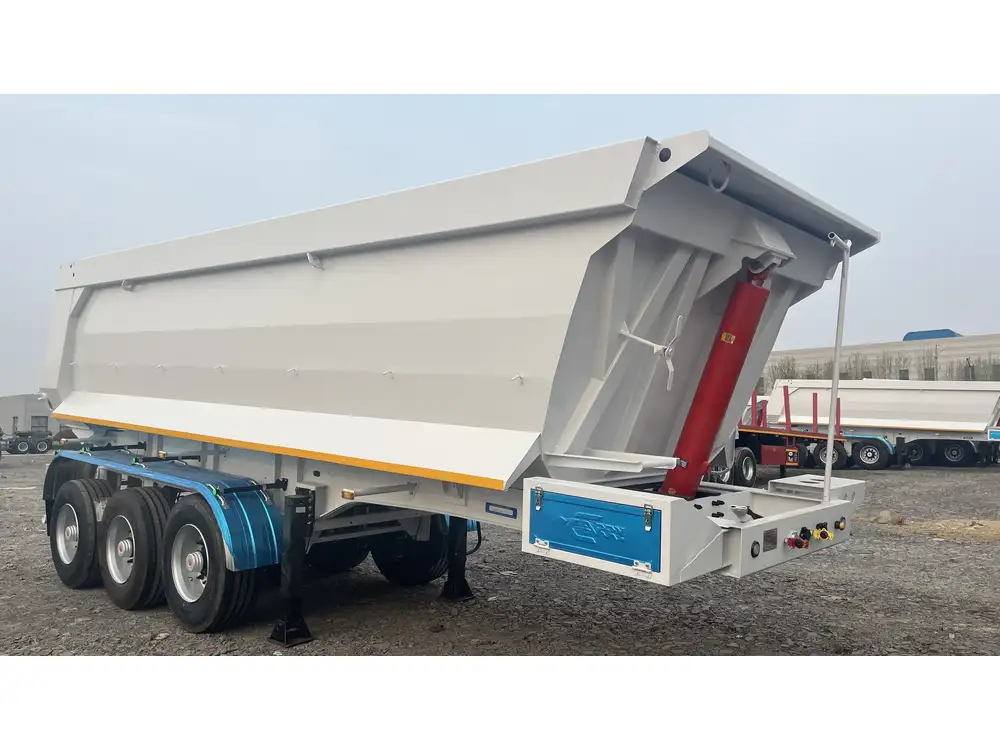When it comes to transporting fuel, the right equipment can make all the difference. Fuel tanker trailers, designed for the safe and efficient movement of liquid fuels, are essential for logistics businesses and fuel suppliers. In this guide, we will explore the various aspects of purchasing fuel tanker trailers, including types, features, key factors to consider, and where to find them.
Understanding Fuel Tanker Trailers
Fuel tanker trailers are specialized vehicles equipped for the transportation of petroleum products. Their primary design focuses on safety, durability, and regulatory compliance. Here are some crucial elements to consider when assessing fuel tanker trailers:
Types of Fuel Tanker Trailers
Single Compartment Tankers:
Ideal for transporting gasoline and other non-corrosive liquids, these tankers have one large compartment, maximizing load capacity.Multi-Compartment Tankers:
These trailers can carry multiple types of fuel or different grades of the same fuel, thanks to individual compartments that prevent cross-contamination.Vacuum Tankers:
Used for transporting liquid waste, these trailers employ a vacuum pump system for effective evacuation of liquids and sludges.Refrigerated Tankers:
Essential for transporting temperature-sensitive fuels or biodiesel mixtures, these trailers have specialized insulation and cooling mechanisms.

Key Features of Fuel Tanker Trailers
Material Composition:
Most tanker trailers are constructed with high-grade aluminum or steel, offering a balance between strength and weight.Safety Systems:
Look for features such as rollover protection, load distribution systems, and dedicated safety valves that prevent spillage and enhance stability.Regulatory Compliance:
Ensure that the trailers meet local and national regulations, including DOT (Department of Transportation) standards, NFPA (National Fire Protection Association) codes, and other relevant safety protocols.
Important Factors to Consider When Buying
When searching for where to buy fuel tanker trailers, several critical factors should influence your decision:
Purpose and Capacity:
Determine your primary use case. A logistics company may require higher capacity multi-compartment tankers, while a small business might only need a single compartment for local deliveries.Cost:
Assess your budget, but also consider the long-term investment. Cheaper options may save initial expenses but could lead to higher operational and maintenance costs.Manufacturer Reputation:
Research manufacturers that specialize in fuel tanker trailers. Look for reviews, testimonials, and case studies showcasing durability and customer satisfaction.Servicing and Parts Availability:
Ensure the manufacturer or dealer offers solid post-purchase support—this includes warranties, servicing options, and ease of access to replacement parts.Financing Options:
Explore available financing arrangements. Some manufacturers offer lease options, which can ease the financial burden, especially for entry-level purchases.
Where to Buy Fuel Tanker Trailers
Once you’ve established what type of fuel tanker trailer fits your needs, the next step is identifying where to purchase one. Here are some suggested avenues worth considering:

1. Directly from Manufacturers
Manufacturers of fuel tanker trailers often offer the best prices and customization options. You can communicate directly with sales representatives to understand specifications, negotiate pricing, and inquire about warranties. Here are some top manufacturers to explore:
| Manufacturer | Notable Features | Website |
|---|---|---|
| Fleets Trailer | Known for lightweight and durable designs | Fleets Trailer |
| Titan Trailers | Offers heavy-duty options with advanced safety features | Titan Trailers |
| TransTech | Custom tankers with strong customer support | TransTech |
2. Local Dealers and Distributors
Inquire with local dealers who specialize in heavy-duty transportation equipment. They often have a range of new and used options, providing the benefit of proximity for service and support. Local dealers can also offer insights on regional compliance regulations regarding fuel transportation.
3. Online Marketplaces
Platforms such as TruckPaper, eBay, and commercial vehicle auction sites host listings for both new and used fuel tanker trailers. These platforms allow you to compare prices, check specifications, and read reviews from previous owners.
| Marketplace | Advantages | Considerations |
|---|---|---|
| TruckPaper | Wide variety, physical inspection possible | Pricing fluctuations, need for diligence |
| eBay | Auctions can lead to lower prices | Risk of seller scams, inspection required |
| Commercial Auctions | Opportunity for great deals | Competitive bidding environment |

4. Trade Shows and Expos
Don’t underestimate the value of in-person exploration at industry trade shows. Events such as the Trucking Show or the National Association of Truck Stop Operators (NATSO) provide great platforms to network with manufacturers and dealers. Many exhibitors showcase the latest fuel tanker technology and offer exclusive deals during the event.
5. Referrals and Industry Recommendations
Leveraging industry connections can lead you to solid recommendations. Speak to fellow logistics companies, fuel distributors, and other stakeholders in the supply chain for insights on reputable sources and their experiences.
Frequently Asked Questions (FAQs)
What is the average cost of a fuel tanker trailer?
Prices can vary widely based on type and features, ranging anywhere from $30,000 for basic models to over $100,000 for specialized, high-capacity trailers.How do I ensure my trailer is compliant with regulations?
Always review local and national regulations. Consult with your dealer or manufacturer about the specific compliance measures integrated into your tanker trailer.What maintenance is required for a fuel tanker?
Regular inspections for leaks, brake checks, and routine servicing of seals and pumps are essential. Follow the manufacturer’s maintenance guidelines diligently.

Conclusion
Finding the right fuel tanker trailer is not just about purchasing a piece of equipment—it’s an investment that can influence the efficiency, safety, and profitability of your logistics operation. By considering the types of trailers available, understanding their features, and knowing where to buy them, you can streamline your fuel transport processes effectively.
Remember, it’s essential to approach this decision with careful research and planning. Your choice of tankers will determine not only how well you serve your clients but also your operational simplicity and safety. Now that you are well-equipped with insights on where to buy fuel tanker trailers, you can make an informed choice that drives your business forward.



